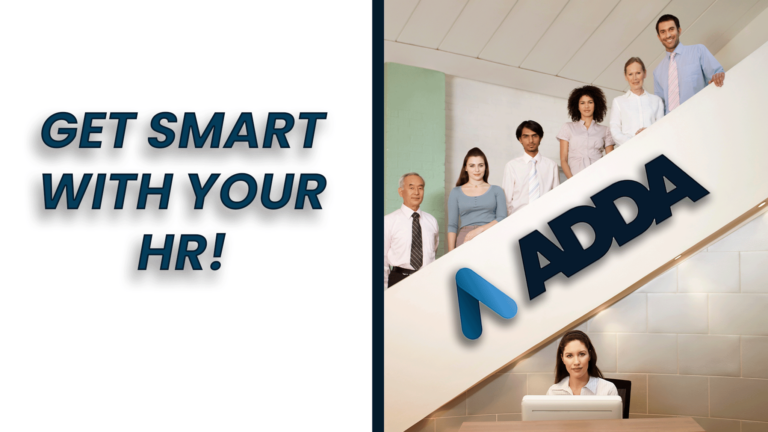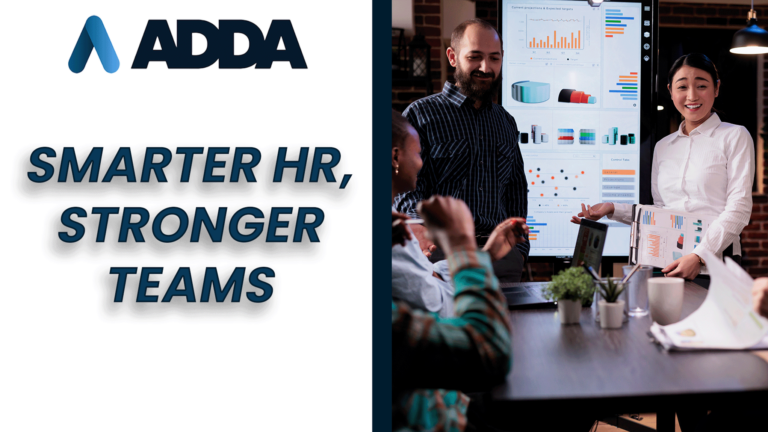Artificial intelligence tools like ChatGPT exploded on the scene this year, impacting a number of industries and roles, HR included. Like everyone else, human resources departments have a lot of learning to do around these AI tools. How should this technology integrate into the HR field? Although HR isn’t a total stranger to AI, we’ve only just scratched the surface with this technology. So let’s take a closer look at what we know and what might come next.
By now, you’ve likely read the whole gamut of hot takes either exalting or diminishing the impact of AI tools on HR, among other fields. The truth is that technology like Open.AI’s ChatGPT really might disrupt the corporate world. However, we’re still a ways away from accurately understanding what that will look like.
Right now, all we have are early applications of this tech and some conjecture about the seemingly endless possibilities. Still, the shift in the conversation around AI’s impact on HR has been palpable nonetheless.
So what do we know about these tools today, and what are some of the possibilities? In this blog, we’ll examine the current and potential impact of AI tools on HR.
How AI impacted HR before ChatGPT
Even before ChatGPT, AI tools had a strong foothold in a variety of business areas. According to an IBM study, 35% of companies had already adopted some form of AI technology in 2022. However, AI’s impact on HR has been a work in progress for a few years, and some results have been particularly promising.
For example, PepsiCo utilized AI to enhance its learning and development programs. Using Lucy AI’s knowledge management system, they organized massive amounts of organizational knowledge and data, making it easier to collaborate and share information among colleagues. PepsiCo’s HR team then put their tool to the test by structuring a digital learning program and found it helped to streamline the process across multiple groups.
Machine learning tools have also been used in recruiting. AI took care of repetitive or tedious tasks like scouring resumes in applicant tracking systems. It’s also been used to identify hiring needs in organizations and even create targeted job ads.
As you can see, AI isn’t totally new to HR. However, a fair amount of the previous use cases required big budgets and technically proficient teams. Though that may continue to be the case for some of the more robust AI solutions and creative applications of the technology, AI is becoming a normalized collaborator for your HR team.
Potential applications of ChatGPT to HR
The overall benefits are clear. ChatGPT and other emerging machine learning technologies can save time on mundane and even more complex tasks. Especially important to mention is that this technology is very accessible. As it stands, the days of HR professionals laboring over spreadsheets and job descriptions are numbered.
Tasks like answering common employee questions or scheduling interviews with candidates should be no problem for AI tools. They’ll also increase access to information on demand, which will be a game changer for organizations working across different time zones.
ChatGPT can also improve your data management by updating information in real-time across your systems and even providing analysis. AI sifts through data much faster than anyone ever could, and it can draw meaningful conclusions using that data.
HR departments can also utilize ChatGPT to prepare the content of things like a benefit or reward structure. That saves a lot of time for your team, leaving the strategic process of refining and executing a plan to HR. It could also take care of writing training materials, operational procedures, and more.
When used effectively, AI saves time and energy that you’ll get to spend elsewhere. The use cases above are just the very tip of the iceberg. AI’s potential is enormous. However, there are some legitimate concerns that businesses must be aware of before heading down the path of applying AI technology in the workplace.

Concerns about AI tools
Because these AI tools are human-made, and they’re fed information by humans, they’re susceptible to human biases. For example, in attempts to elicit employee feedback, ChatGPT tended to provide biased responses based on race and gender. Often, ChatGPT assumed race or gender based on certain words supplied in the query. The tendency toward bias for AI tools is a serious problem for HR departments.
Additionally, these tools don’t always produce accurate results. However, in the case of ChatGPT, the answers sound very convincing. If you aren’t diligent about fact-checking, you could create inaccurate content, policies, and more.
Another concern is finding the right balance between human-managed processes versus AI-managed processes. Certain issues require the empathy and judgment of an actual human, and AI simply cannot replicate that yet. Moreover, AI will likely render specific roles redundant, but it will also create new positions in your HR department. Navigating those changes will certainly take a lot of trial and error.
Finally, data privacy can’t be overlooked. Will ChatGPT, or another tool like it, have access to sensitive employee data? If so, how long will the platform hold that data, and who owns it? HR departments have a lot of homework to do before exploring the full potential of these tools.
While many of these issues could get ironed out over time, the adoption of this technology is moving very fast. It’s fair to be excited, but you should also practice a bit of caution.
Navigate the future of work with ADDA
The future of work is here, and though new technologies are exciting, the frequent changes that follow can feel relentless. With ADDA’s help, your business can more effectively manage change and navigate things like the impact of AI tools on HR. Contact us today to learn how our HR expertise can future-proof your business.








